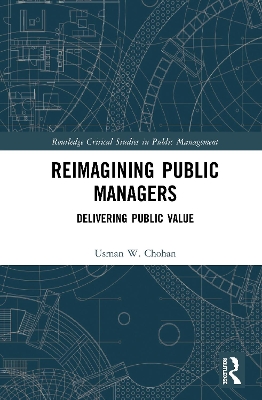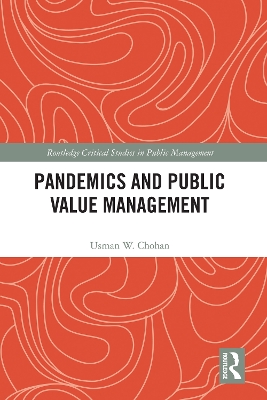Routledge Critical Studies in Public Management
2 total works
Public value theory speaks to the co-creation of value between politicians, citizens, and public managers, with a focus on the public manager in terms of her contributions, initiatives, and limitations in value creation. But just who are public managers? Public value regularly treats the "public manager" as synonymous with bureaucrat, government official, civil servant, or public administrator. However, the categories of public managers represent a more versatile and expansive set of agents in society than they are given credit for, and the discourse of public value has typically not delved sufficiently into the variety of possible cadres that might comprise the "public manager."
This book seeks to go beyond the assumed understandings of who the public manager is and what she does. It does so by examining the processes of value creation that are driven by non-traditional sets of public managers, which include the judiciary, the armed forces, multilateral institutions, and central banks. It applies public value tools to understand their value creation and uses their unique attributes to inform our understanding of public value theory. Tailored to an audience comprising public administration scholars, students of government, public officials, practitioners, and social scientists interested in contemporary problems of values in society, this book helps to advance public administration thought by re-examining the theory’s ultimate protagonist: the public manager. It therefore constitutes an important effort to take public value theory forward by going "beyond" conceptions of the public manager as she has thus far been understood.
Widespread crisis-events such as pandemics can impose an immense strain on societies' multi-stakeholder efforts to preserve and sustain the mechanisms of public value (PV) creation. The global coronavirus (Covid-19) pandemic exemplifies this because it has pushed civil society, public managers, politicians, and society-at-large into uncharted waters, and at times brought them under exceptional duress. Then how can public value's agents attempt to conceive, create, and preserve value under such disruptive circumstances? How could public value theory's (PVT's) theoretical precepts be informed by the pandemic?
This book seeks to inform the PVT literature by drawing upon interesting lenses that have emerged in the wake of the coronavirus pandemic. It addresses PVT's notions of value conflicts, post-Truth politics, multilateral PV, nationalism and the public, comparative PV creation, and PV in developing-country contexts, in order to construct a multi-stakeholder and internationally informed set of analyses on public value's systems and agents in uniquely distressing circumstances such as pandemics.
This book will therefore be of use to both academics and practitioners of public administration and public policy, as well as scholars of government, healthcare policy, and economics.

